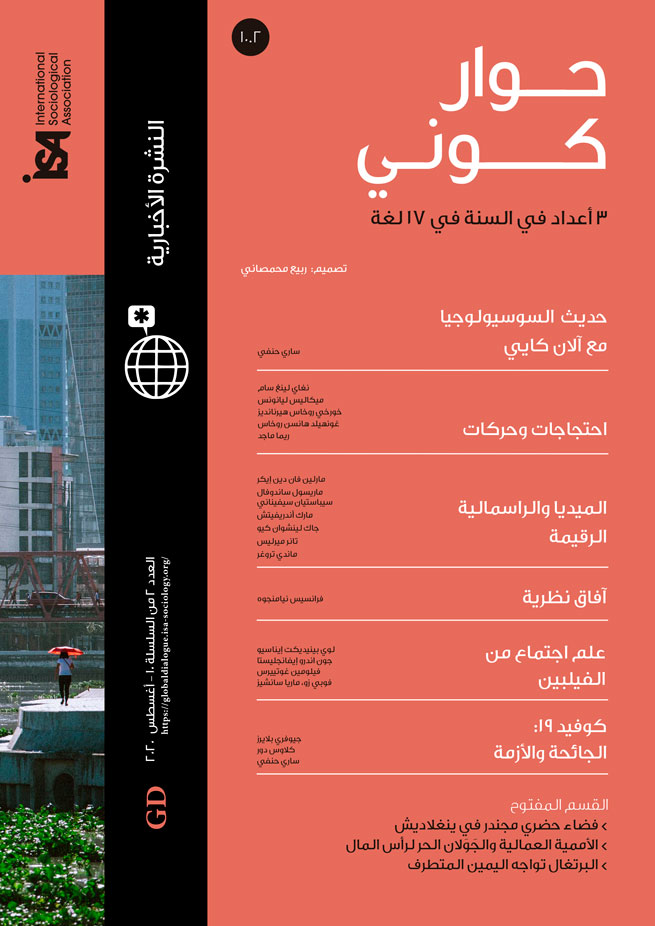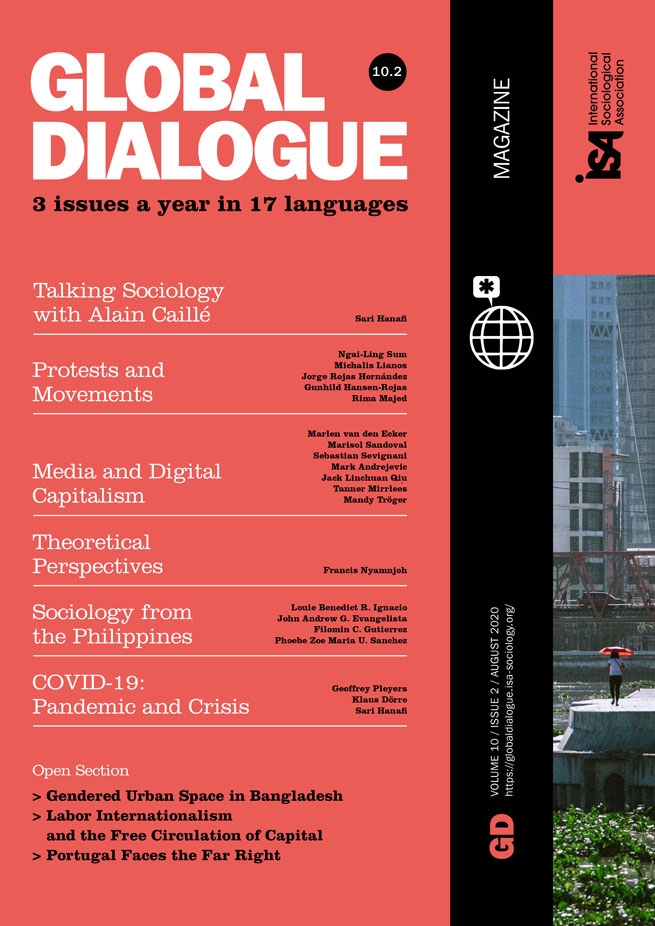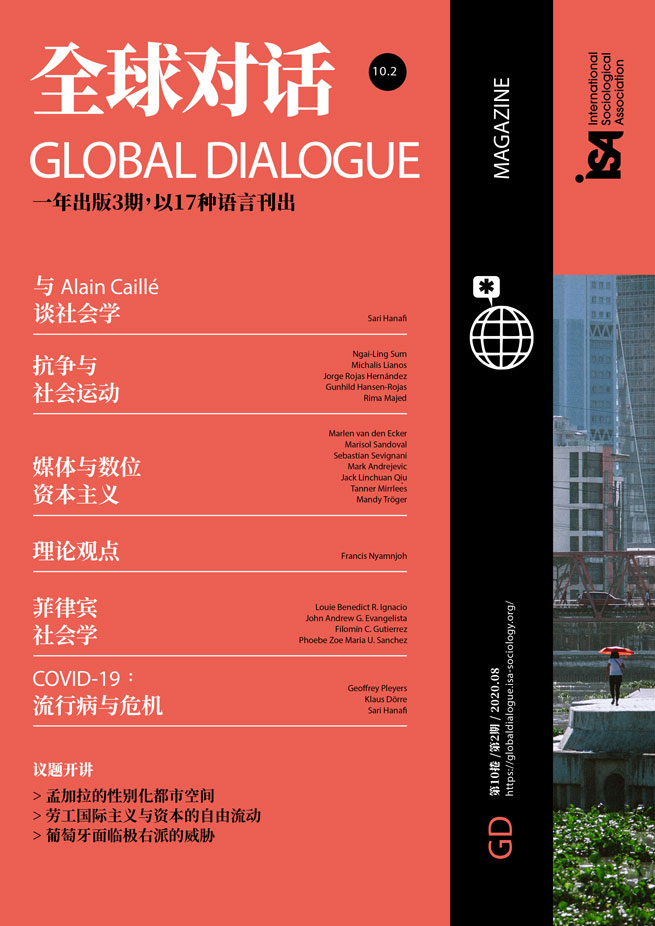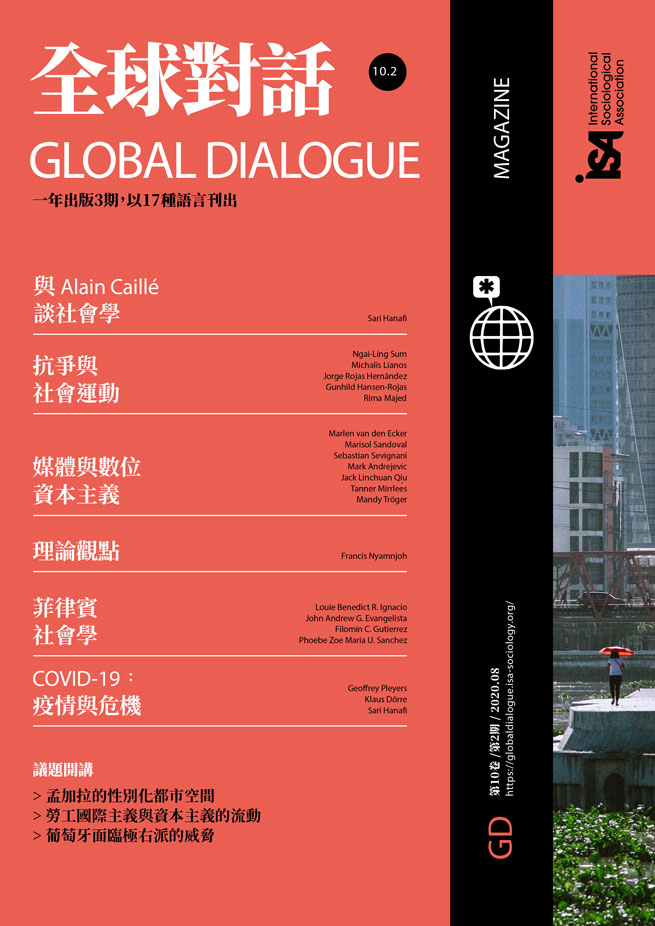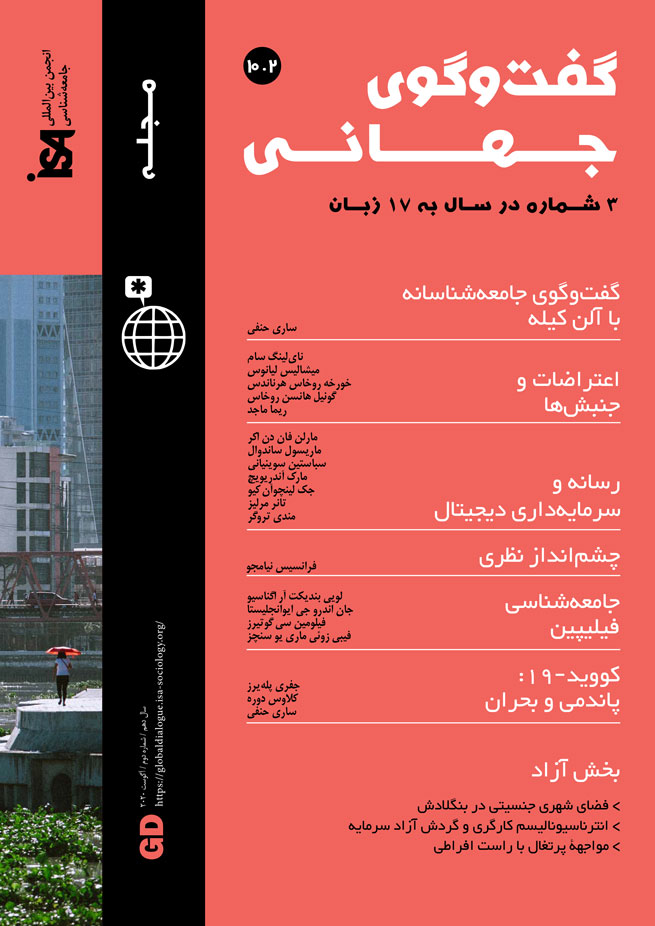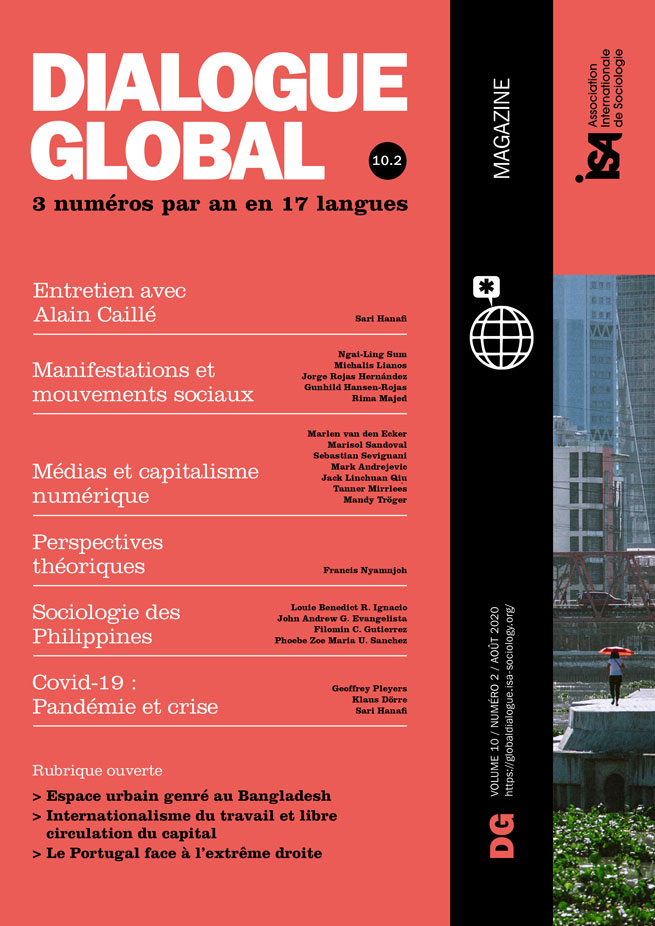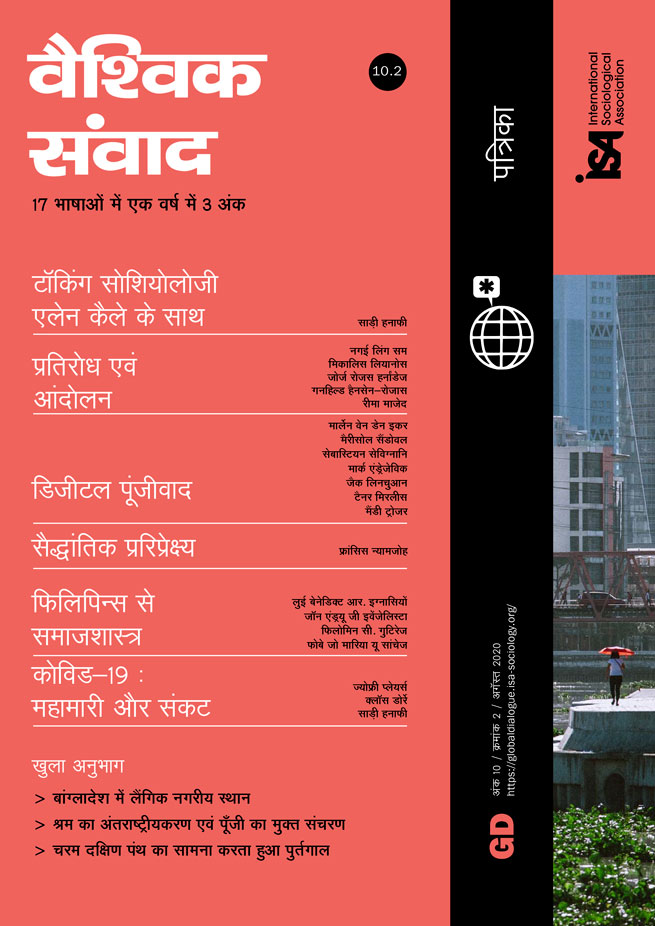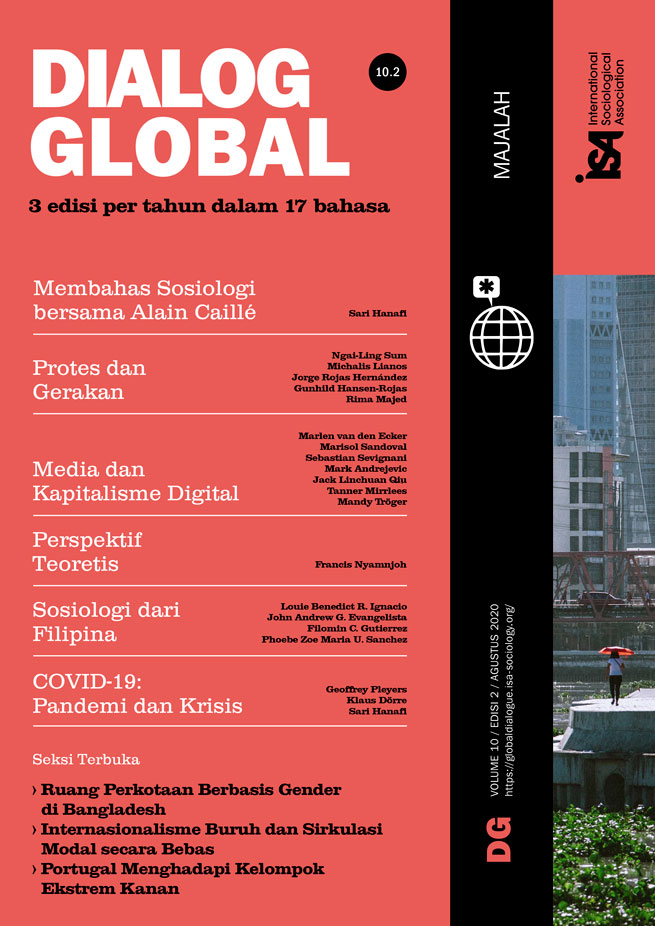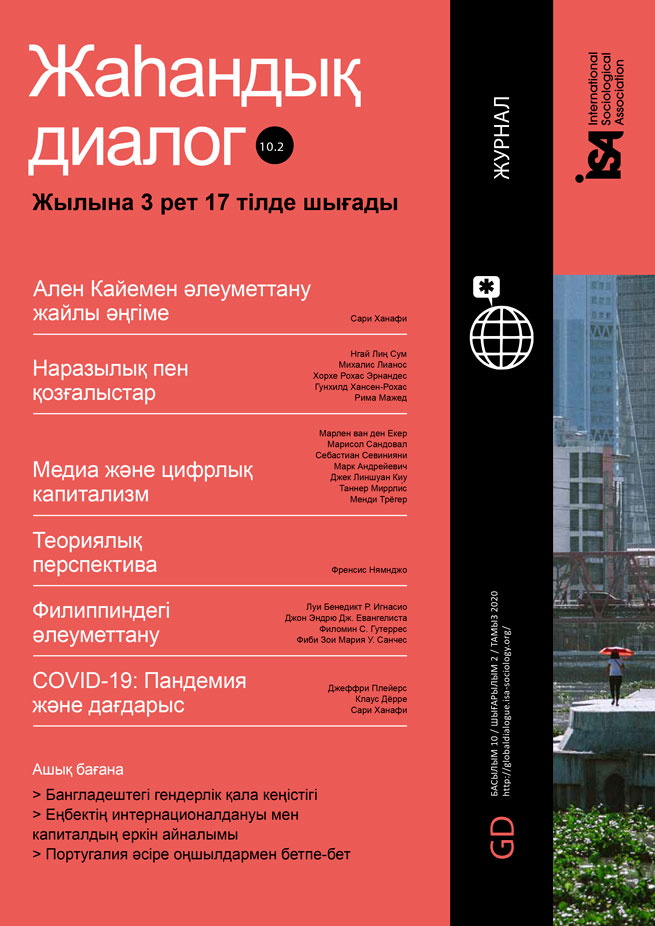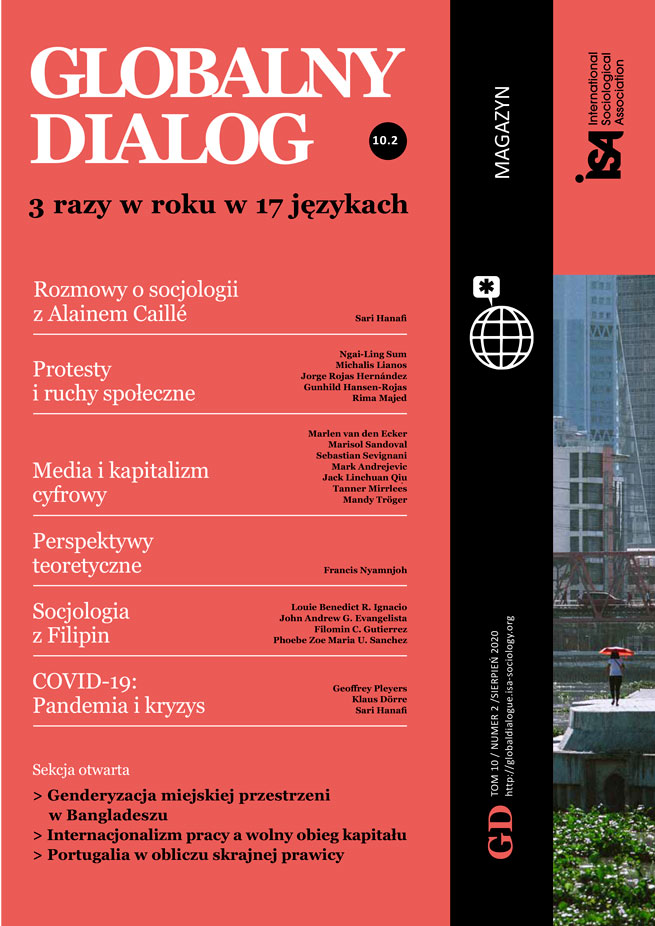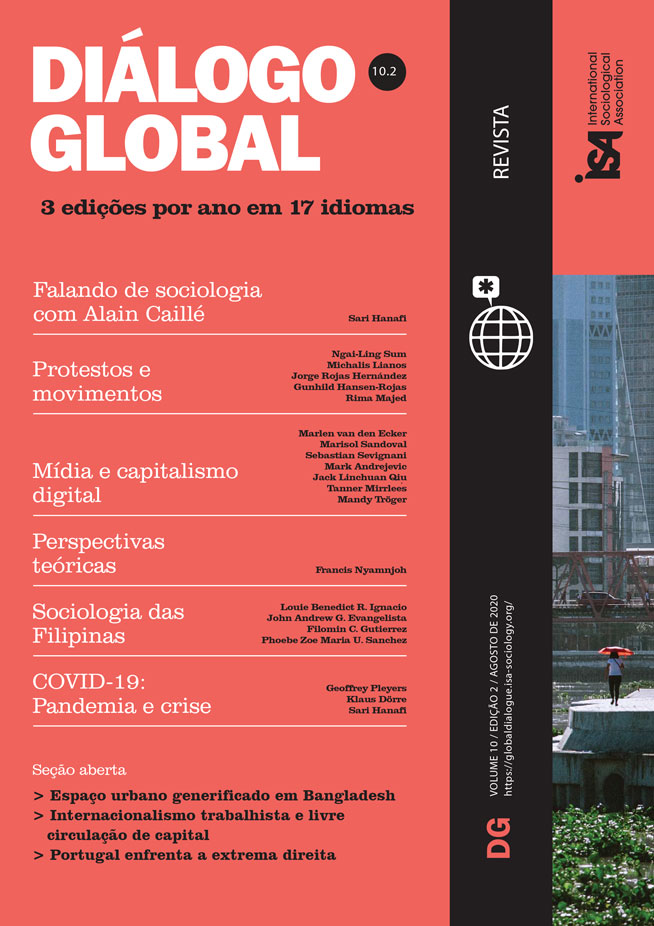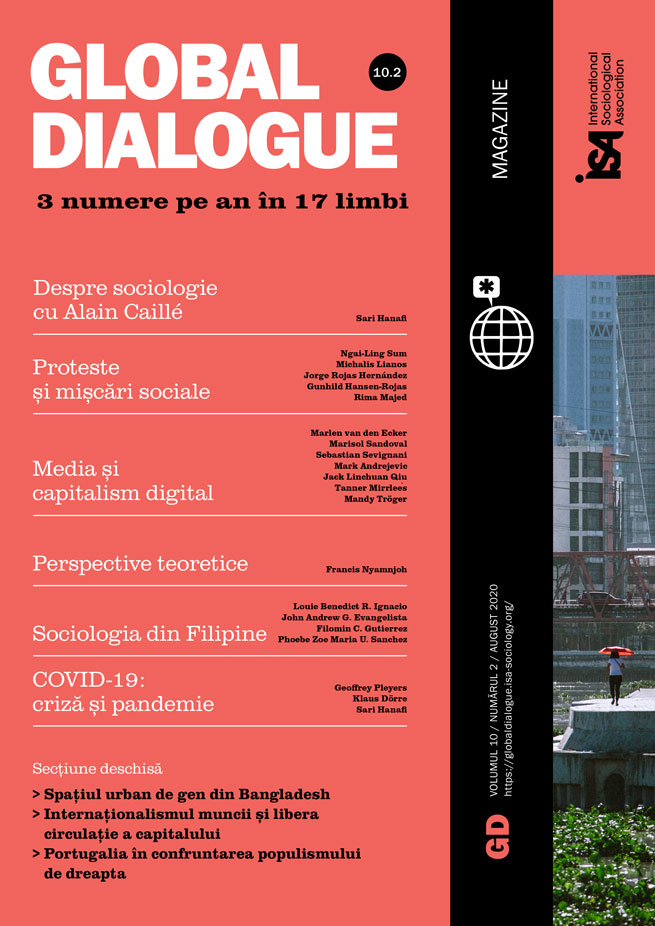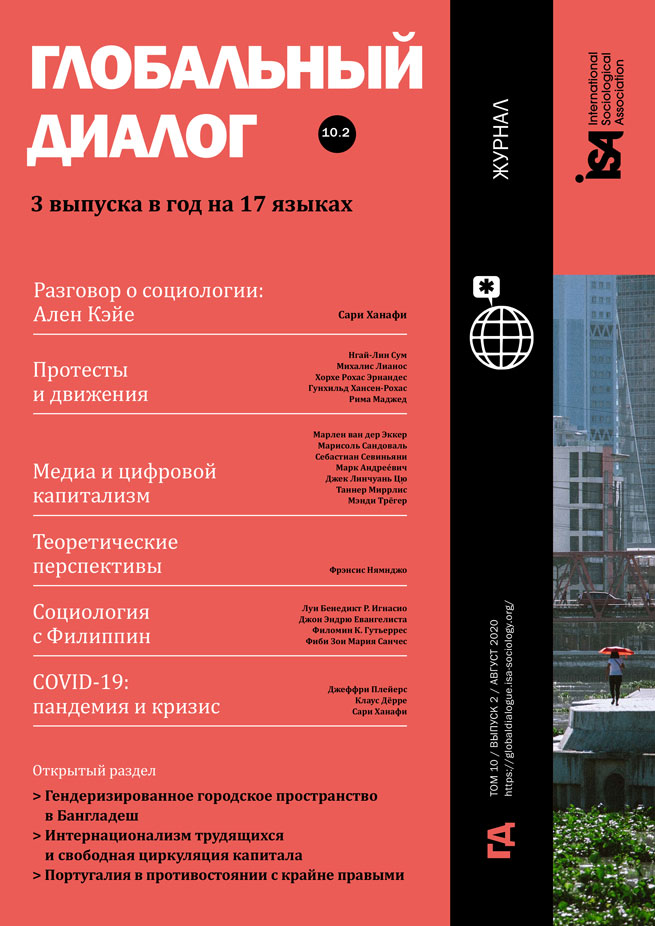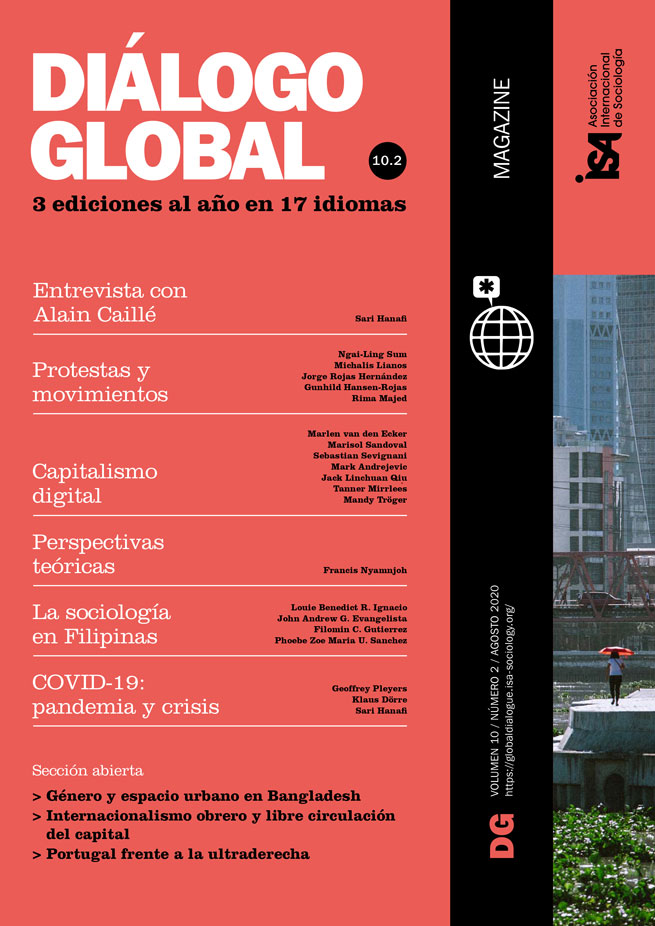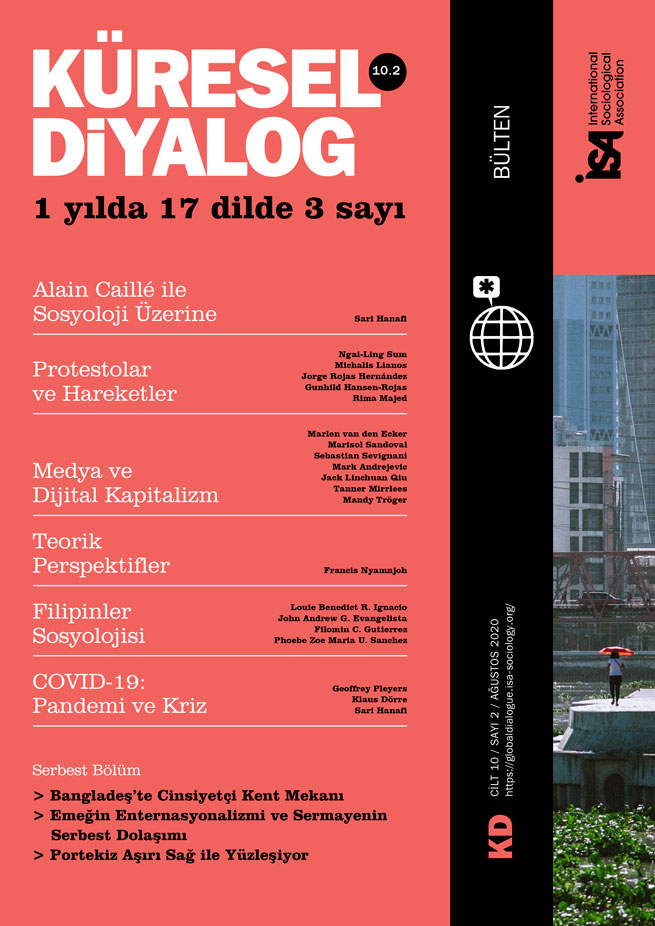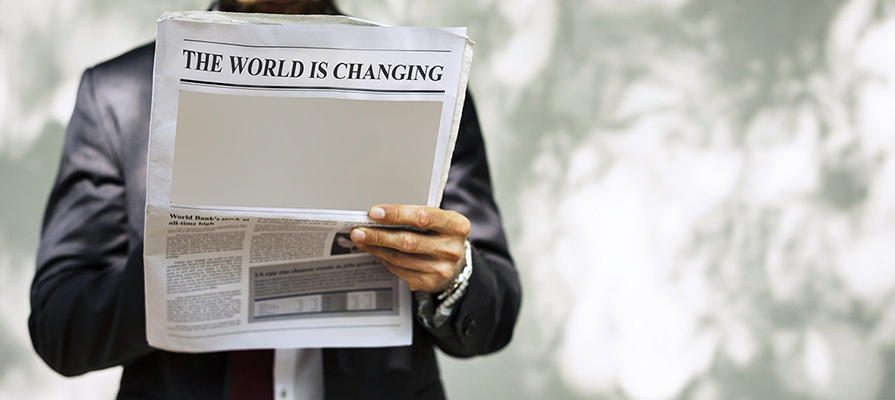Read more about COVID-19: Pandemic and Crisis

COVID-19: First Lessons from the Current Pandemic
by Klaus Dörre
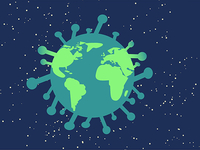
Global Sociology in the Pandemic
by Geoffrey Pleyers
June 26, 2020
The surreal atmosphere of the COVID-19 pandemic has exposed fault lines in trust among human beings, among countries, and between citizens and governments; it is pushing us to raise big questions about ourselves, our social relationships, and life generally. This crisis is not just limited to public and environmental health or the economy; what we are witnessing is a moment of truth regarding the crisis of late modernity and its capitalist system on a broad, overarching scale. We will not be able to simply revert to “business as usual” after we get through this crisis, and the social sciences should strive to both analyze and actively engage in addressing these new realities.
What will sociology be in the post-Corona world? I would like to place emphasis on three tasks for sociology: to build multi-level focuses that branch from community to humanity; to take an active approach in fighting against the diseases of the Anthropocene and the Capitalocene; and, finally, to set a better agenda for recognition and moral obligation.
Multi-level focuses, from community to humanity
First, the situation in light of the coronavirus has very clearly revealed how truly interconnected the world is, transforming the image of a global village from a metaphor to a reality. But we still need to generate more global solidarity and more humanistic globalization. To do so successfully requires a multi-scale conceptualization. Gilles Deleuze argued that the Left (including most social scientists) perceives the world in terms of relationships that begin from the most distant, and move inward. Social inequality, for instance, has been understood as a large, global phenomenon of exploitation that can be traced inward, through imperialism and colonialism. Because of this, most social scientists call to deal with the structures of imperialism and colonialism in order to properly address the suffering of the affected (abstract) social classes.
Contrary to this are someidentity politics movements (i.e., some Islamic movements, and far right-wing and conservative movements) which view relationships as beginning from a close point, and moving to the most distant. They believe in community work, and in family and neighborhood relationships. For instance, Trump supporters believe in his capacity to address the social inequalities faced by forgotten communities of rural white Americans. And faith-based organizations in Lebanon are currently the most proactive NGOs dealing with families who have lost their jobs during the lockdown. In the case of the other identity politics movements (focused around ethnicity, gender, sexuality, etc.), their struggle may vary considerably depending on the context but is often anchored in community struggle, armed with the universalist human rights doctrine. Yet, for Richard Rorty, while advancing a cultural agenda of pluralism, this “cultural Left’s” struggle for social class justice is sometimes very minimal (as the case of the US).
I see post-Corona sociology as one capable of reinventing how sociology has traditionally commanded its focus (from the outward-in, or from the inward-out) towards creating methods that use multi-scale focuses: rethinking the importance of the family, community, and of the ethics of love, hospitality, and caring, and then scaling up to the level of the nation-state and humanity as a whole.
Struggling against the Anthropocene/Capitalocene
COVID-19 is a disease not only of globalization but also of the Anthropocene. The creed of human consumerism is depleting resources that our planet Earth cannot renew, and this virus is but one (albeit significant) episode of such consumerism. As we know, this virus was transmitted from non-domesticated animals (like civets, pangolins, and bats) to human beings through the consumption of these animals. Are they really so tasty? Bourdieu would consider this as a sign of distinction, pointing to the significant amount of unnecessary and luxurious objects that we, the middle and lower-middle class, consume. Here, for many Lebanese, a vacation becomes synonymous with traveling abroad.
This voracious consumerism is induced by what the French sociologist Rigas Arvanitis called the mythological access to happiness, which ultimately serves as an effective accelerator for more health troubles, epidemics, deaths, and disasters. Examining these multi-scale relationships cannot be done without reconnecting the individual, society, and nature. For instance, addressing climate change and the political economic system cannot be done without raising public awareness on the relationship of people to the earth and to humanity. Jason Moore proposes the notion of the “Capitalocene” as a kind of critical provocation to the sensibility of the Anthropocene. For him, capitalism is organizing nature as a whole: it is world-ecology that joins the accumulation of capital, the pursuit of power, and the co-production of nature in successive historical configurations.
This multi-scale approach requires reconnecting the economic to the social, and connecting these to the political, and to the cultural. We need to revive Karl Polanyi’s concept of social embeddedness. Polanyi introduced three forms of integrating society to economy: exchange, redistribution, and reciprocity. Our social sciences thus should rethink these three terms seriously, as the market (a place of exchange) needs to be moralized, which includes establishing firm societal control against all forms of speculation. Redistribution cannot be done without taking significant measures to prevent the concentration of wealth in a minority of companies in each sector, without establishing heavy taxation on high levels of capital and wealth, and without moving to a slow-growth economy and its corollaries (including the need for cheap and low-carbon public transportation, seeing public services as investments rather than liabilities, and increasing the security of labor markets). I will leave the question of reciprocity for the next section of this article.
We are aware that the struggle for the environment is inseparable from our choice of political economy, and from the nature of our desired economic system – and these connections between human beings and nature have never been as immediately or intimately connected as they are now. There is an acute crisis of rapid growth that was expressed very clearly by former President of the United States, Ronald Reagan, when he said: “[t]here are no such things as limits to growth, because there are no limits to the human capacity for intelligence, imagination and wonder.” In a previous issue of Global Dialogue James Galbraith and Klaus Dörre suggested that there are indeed limits to growth and delineated a consciously slow-growing new economy that incorporates the biophysical foundations of economics into its functioning mechanisms.
A politics of recognition and moral obligation
Now I will come to the question of reciprocity in Polanyi’s social embeddedness. Polanyi defined it as the mutual exchange of goods or services as part of long-term relationships, where reciprocity, moral obligation, and concern are added to contractual relations. Reciprocity requires a politics of recognition between groups and/or networks who accept the identity of the others, which works in line with the paradigm of pluralism and multiculturalism. Functioning reciprocity is dependent on the strength or weakness of the moral obligations in social relations. Strong social relations may be seen in the solidarity networks posited by Mark Granovetter, who argues that sometimes strong network relationships are gift-based relationships. Related to, and expanding on this, is the view of Alain Caillé who pushes an anti-utilitarian hypothesis, where the desire of human beings to be valued as givers means that our relationships are not based on interest alone, but in pleasure, moral duty, and spontaneity.
Post-Corona sociology will only be meaningful if it is armed with a utopia that, even if it is not fully realizable, will direct our actions. There is no ethical life without utopia, and the difference between clerical preaching and a sociologist’s utopia is that the latter does not necessarily denounce the anti-utopian vision of others, and may even seek to work with those who believe in it. Such sociology thus should appreciate and further the Maussian gift relationship and the moral obligation connecting the social sciences to moral philosophy.
This global crisis may have prompted fresh strategies to reinforce exploitation, dispossession, and neoliberal capitalism, and increased the reach of our greed and selfishness, but it has also given us an opportunity to explore and provide new ways of understanding and reclaiming our social justice and humanity.
Sari Hanafi, American University of Beirut, Lebanon and President of the International Sociological Association (2018-22) <sh41@aub.edu.lb>
This issue is not available yet in this language.
Request to be notified when the issue is available in your language.
If you prefer, you can access previous issues available in your language:
